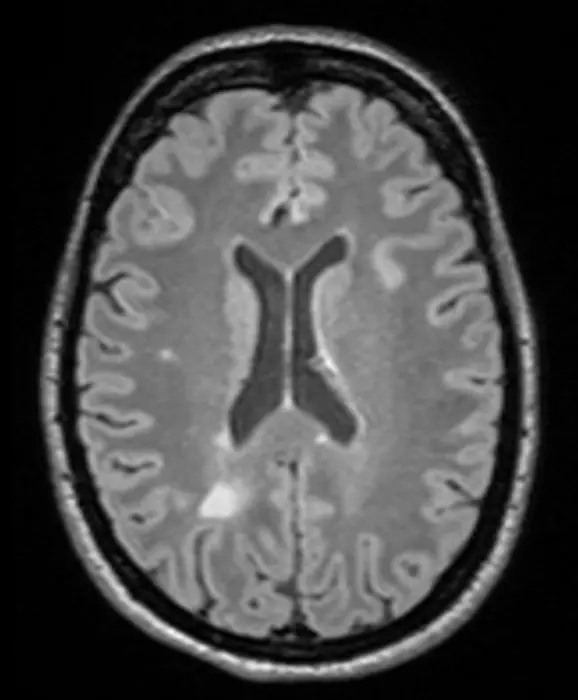Multiple sclerosis (MS) can take many different forms, which is why it is sometimes called “the disease of a thousand faces.” MS is also complex and difficult to treat. Now, an international consortium headed by Charité – Universitätsmedizin Berlin aims to change that. The partners plan to develop an AI-supported online platform that can predict the course of MS on an individual basis to make it easier to identify the best treatment for specific patients. The project, titled “Clinical impact through AI-assisted MS care” (CLAIMS), will be receiving nearly 10 million euros in funding for four years as part of the EU’s Innovative Health Initiative.

Credit: © Charité
Multiple sclerosis (MS) can take many different forms, which is why it is sometimes called “the disease of a thousand faces.” MS is also complex and difficult to treat. Now, an international consortium headed by Charité – Universitätsmedizin Berlin aims to change that. The partners plan to develop an AI-supported online platform that can predict the course of MS on an individual basis to make it easier to identify the best treatment for specific patients. The project, titled “Clinical impact through AI-assisted MS care” (CLAIMS), will be receiving nearly 10 million euros in funding for four years as part of the EU’s Innovative Health Initiative.
In multiple sclerosis, the immune system attacks the central nervous system. Depending on which nerve fibers are damaged, this can cause visual and sensory impairments, fatigue, difficulty concentrating, motor problems, and other neurological symptoms. Worldwide, there are over 2.8 million people living with this severe autoimmune disorder, some 1.2 million of them in the EU. Women make up 70 to 80 percent of patients. There is no cure for MS, but medications and other treatments can affect the course of the disease and bring more favorable outcomes. Achieving that requires treatment that is as individually tailored as possible.
“Our goal with the CLAIMS project is to personalize the treatment of people with MS even more,” explains Prof. Friedemann Paul, the coordinator of the initiative and the director of the Experimental and Clinical Research Center (ECRC), a joint institution of Charité and the Max Delbrück Center. “To that end, we plan to develop predictive models that can forecast the course of the disease for each individual patient based on their individual data and simulate the effects of different medications. Patient involvement will be a crucial element of this,” he says.
To develop the platform, the consortium will bring together the clinical, scientific, technical, and communicative expertise of 15 public and private partners from nine different countries – from hospitals and universities to companies large and small and a foundation. The algorithms will be trained on clinical data such as MRI scans and the results of blood and eye tests over the course of the disease. Plans also call for an app that patients can use to enter information on their symptoms, how they are feeling, and financial burdens. This information will be pseudonymized and transmitted in accordance with data protection and privacy laws. Advanced AI models based on deep learning will be used to analyze the data. There are also plans for the platform to be able to factor in any additional diseases or health conditions the patient may have.
The goal is to arrive at a picture of an individual’s MS that is as holistic and detailed as possible. At the same time, the research team hopes to learn more about multiple sclerosis – such as how it develops, with or without attacks, flareups, or relapses. “We hope this holistic view will allow every individual MS patient to receive the right medication at the right time,” Paul explains. “I firmly believe this approach will allow us to make significant improvements in quality of life and prognosis for people with MS.”
About CLAIMS
CLAIMS is one of the first five projects approved for funding as part of the Innovative Health Initiative. It is to receive about 9.9 million euros for a four-year term. About half the financing is being provided by Horizon Europe, the EU’s framework program for research and development, and industry partners. The 15 public and private partners involved in CLAIMS are: Charité – Universitätsmedizin Berlin (coordination; Germany), icometrix NV (project management; Belgium), Aalto University (Finland), AB Science SA (France), Bristol-Myers Squibb (USA), Casa di Cura iGEA SpA (Italy), the European Charcot Foundation (Belgium), F. Hoffmann-La Roche AG (Switzerland), Imcyse SA (Belgium), Nocturne GmbH (Germany), Ruhr-Universität Bochum (Germany), SYNAPSE Research Management Partners SL (Spain), Dresden University of Technology (Germany), University of Lille (France), and General University Hospital (VFN) in Prague (Czech Republic). Prof. Friedemann Paul, the coordinator of the initiative, is the director of the ECRC and head of the Clinical Neuroimmunology group at the Neuroscience Clinical Research Center (NCRC) at Charité. Grant Agreement No. 101112153.
About the Innovative Health Initiative (IHI)
The Innovative Health Initiative (IHI) is a partnership between the European Union and European industry associations representing the pharmaceutical, medical technology, biotechnology, digital health and vaccine industries. Its core goals are to translate health research and innovation into real benefits for patients and society, and ensure that Europe remains at the cutting edge of interdisciplinary, sustainable, patient-centric health research.



